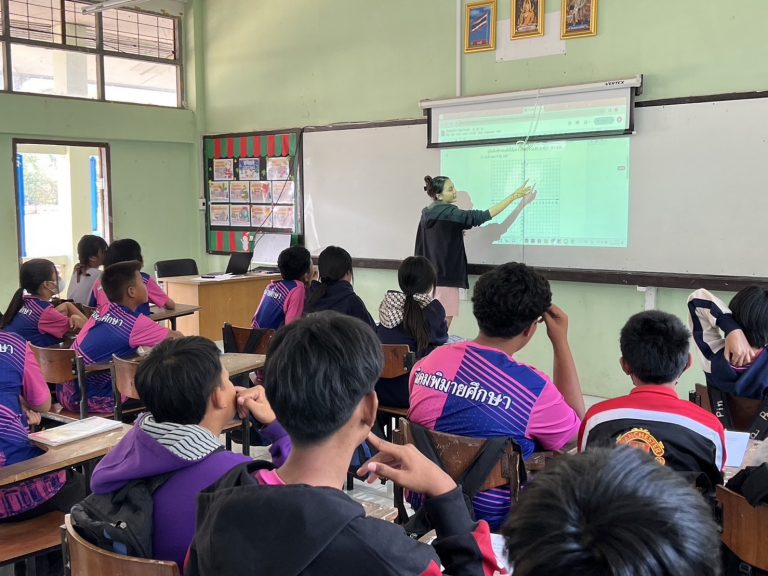Take the Challenge, Drive the Change
"These students were often perceived as quiet and unresponsive because they rarely participated in classroom activities, but I believe they have potential; they just need a chance to unleash it." ‘Oum-Im’ – Alada Singhamat, a member of Teach For Thailand's 10th cohort, recalls one of the challenges she faced shortly after starting her work at school: training five students for a project competition held by the Yuvabhaddhana Foundation. The competition consisted of a project,a presentation, and a Q&A session.

This challenge was new to both her and her students, with the two biggest challenges being: firstly, the constant changes to the list of competitors, even as the competition approached, which left Oum-Im with very little time to train her students; secondly, the student’s lack of familiarity with public speaking and presentation. These are students overlooked by other teachers as quiet and lacking in classroom participation.
“But I believe they have the potential; they just need an opportunity to demonstrate it.”
With a strong belief in their potential for growth, Oum-Im began training her students in public speaking and project presentation skills. She tailored the learning process step-by-step while maintaining a challenging level for them.
“They have not done this before, so we need to break down the information and focus on guiding them to think. As teachers, our role is to assist with proofreading.”
“During the training, many students were discouraged as this was new territory for them. I chose to calm them and talk to them, offering encouragement. If they made mistakes, I tended not to scold them but instead gave them suggestions on how to solve the issue.”
“Especially for those lacking confidence, I deliberately gave them more parts to present. This helped them become more focused on their tasks and less embarrassed when speaking aloud.”
In addition to providing positive encouragement, Oum-Im also familiarized her students with quick thinking, which would be necessary during the Q&A session.
“My students were very shy at first; they wouldn’t respond when asked anything,” recalled Oum-Im. “So I changed my approach: instead of asking formal questions, I simplified them to everyday conversations to help them feel more at ease. Then I incorporated the content of the project into those conversations.”
“As it turned out, many of the topics we discussed during these conversations were asked on the day of the competition, and the students were able to answer them.”
The result of the competition: Oum-Im’s students had won second place, with only a slight difference in score from the winner.
Furthermore, the outcomes of the competition were not only the win but also the change in the students’ and other teachers’ perspectives on the students.
“Before the competition, they would say, ‘I don’t think I can do it,’” recalled Oum-Im. “But after seeing the results, they realized they could, and some even asked me if they could participate in bigger competitions.”
The success of their classmates also inspired other students to see more possibilities and strive to achieve the same. Oum-Im recalled students who had not signed up for the competition approaching her this time.
“They asked if there were any other competitions and wanted me to sign them up,” Oum-Im laughed. “They wanted to participate in something similar to this project competition and showed a lot of enthusiasm.”
Another success was the change in teachers’ perspectives at the school.
“Some teachers complimented them to me, saying they are now participating a lot more in class and are enthusiastic about answering questions. Their responses are also well-structured.”
“They told me that once they had overcome a difficult competition, presenting in class was not a big deal anymore,” she added proudly.
Overcoming challenges isn’t easy, but it’s not impossible either. Moreover, the results bring about valuable experience, which can be built upon for more sustainable changes – similar to Oum-Im and many fellows. Teach For Thailand supports passionate and equality-minded individuals to do the hardest work, teaching, so they can address challenges and provide children in Thailand with equitable access to quality education, enabling them to choose their future.

